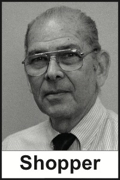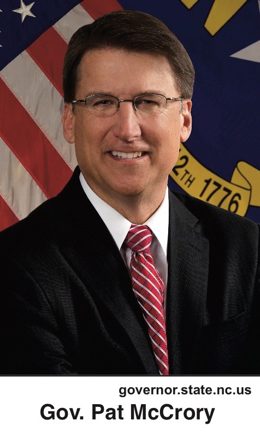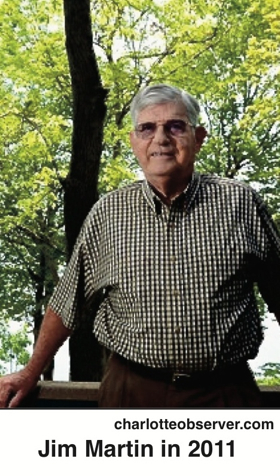Rascals case in brief
In the beginning, in 1989, more than 90 children at the Little Rascals Day Care Center in Edenton, North Carolina, accused a total of 20 adults with 429 instances of sexual abuse over a three-year period. It may have all begun with one parent’s complaint about punishment given her child.
Among the alleged perpetrators: the sheriff and mayor. But prosecutors would charge only Robin Byrum, Darlene Harris, Elizabeth “Betsy” Kelly, Robert “Bob” Kelly, Willard Scott Privott, Shelley Stone and Dawn Wilson – the Edenton 7.
Along with sodomy and beatings, allegations included a baby killed with a handgun, a child being hung upside down from a tree and being set on fire and countless other fantastic incidents involving spaceships, hot air balloons, pirate ships and trained sharks.
By the time prosecutors dropped the last charges in 1997, Little Rascals had become North Carolina’s longest and most costly criminal trial. Prosecutors kept defendants jailed in hopes at least one would turn against their supposed co-conspirators. Remarkably, none did. Another shameful record: Five defendants had to wait longer to face their accusers in court than anyone else in North Carolina history.
Between 1991 and 1997, Ofra Bikel produced three extraordinary episodes on the Little Rascals case for the PBS series “Frontline.” Although “Innocence Lost” did not deter prosecutors, it exposed their tactics and fostered nationwide skepticism and dismay.
With each passing year, the absurdity of the Little Rascals charges has become more obvious. But no admission of error has ever come from prosecutors, police, interviewers or parents. This site is devoted to the issues raised by this case.
On Facebook
Click for earlier Facebook posts archived on this site
Click to go to
Today’s random selection from the Little Rascals Day Care archives….
Click for earlier Facebook posts archived on this site
Click to go to
Today’s random selection from the Little Rascals Day Care archives….
Therapists ‘overzealous… inadequately trained… unethical’
 Feb. 17, 2012
Feb. 17, 2012
“The named children were sent to predominantly four therapists (Betty Robertson, Judy Abbott, Susan Childers and Michele Zimmerman).
“The therapists were not only overzealous and inadequately trained, but also proceeded in an unethical fashion with the children. Reporting frequently to the district attorney’s office, they provided more names of children and adults and more specific allegations of abuse. These were not spontaneous names and allegations, but data specifically and persistently introduced by the therapists. The personal and familial issues that the children brought into the so-called therapy were ignored….
“From my review of the therapists’ notes of the 17 children who testified, it was clear the therapists were not treating these children psychotherapeutically, but were agents of the prosecution in preparing children to testify falsely with credibility…..
“Significantly, those parents who took their children to therapists in other communities or avoided these four therapists had no allegations of sexual abuse and their children were symptom-free. In contrast, the children who provided stories of sexual abuse became increasingly symptomatic over time, and their behavior became more disturbed.”
– From “What I learned from the Edenton Little Rascals sex abuse trial” by
Moisy Shopper, M.D. (in the peer-reviewed journal Psychoanalytic Inquiry, 2009)
Dr. Shopper testified as an expert witness for the defense.
Therapists, don’t commingle your forensic, therapeutic roles

Kirk
June 18, 2018
“Ted Cross, a senior research specialist at the University of Illinois School of Social Work, [said] separation of the two interventions – forensic and therapeutic – is critical for the child, but is also important for practical reasons: ‘You don’t want the therapeutic work to taint a criminal investigation. If a child is in therapy at the same time that the forensic interview takes place, the attorney representing the offender can say the therapist planted the idea of abuse in the child’s head.’.
“This point is of particular importance in the wake of high-profile cases such as the McMartin Preschool trial during the 1980s, in which therapists’ interviewing techniques were so suggestive that the children falsely accused their teachers of abuse….”
– From “How to Build a Space to Support Abused Children” by Mimi Kirk at Atlantic Cities (March 29)
Did the Little Rascals therapists offer children any therapy at all? What do you think?
![]()
‘So, Paula, do YOU think I should pardon them?’
 April 29, 2015
April 29, 2015
“Wednesday marks the 230th day that Governor Pat McCrory has refused to grant a pardon of innocence to Henry McCollum and Leon Brown, the two Robeson County men who both spent 31 years in prison for a rape and murder they did not commit.
“The two men, both mentally disabled and struggling to pay their bills, need the pardon from McCrory to be eligible for financial compensation from the state for the years they were wrongly incarcerated. McCrory received the petition September 11 of last year.
“McCrory has been busy of course, most recently taking an unannounced trip to Los Angeles where he appeared on a panel at conference (and hobnobbed) with Paula Abdul and other celebrities at an event called the Global Gourmet Games….
“Meanwhile Henry McCollum and Leon Brown are still waiting for justice from McCrory and still struggling to pay their water bill….”
– From “Day 230 of Gov. McCrory denying justice to Henry McCollum and Leon Brown” by Chris Fitzsimon at the Progressive Pulse (April 19)
It’s not just Junior Chandler and the Edenton Seven who suffer from the indifference of elected officials who hold the power to at last do right by them.
To withhold compensation from the hapless McCollum and Brown seems especially heartless. If McCrory has an explanation for his nearly eight months of foot-dragging, he’s not revealing it – unless maybe he spilled to his tablemates at the Global Gourmet Games….
‘I was aware of the possibility of childish fantasy….’
 July 11, 2014
July 11, 2014
“…. As you might imagine, I had not had reason to think about the Little Rascals case until your email arrived. Yes, I was very interested in the case at the time, but had no role or authority to intervene. (See governor’s 1991 response to letter writers.) The arrests and charges were highly publicized, as were the proceedings of the trial, upon which the two accused were convicted. So, like most citizens, I felt a compulsion to follow the case, at least insofar as the news coverage.
“My recollection is that both the horrible accusations and the contrary indications of coached and imaginative testimony of the children were featured in the coverage…. Being very familiar with Arthur Miller’s brilliant drama, ‘The Crucible,’ I was aware of the possibility of childish fantasy passing as falsely condemning testimony. From a distance, most readers probably shared the concern, ‘What if it were true?’
“I do not recall whether the defense attorneys contacted my office in an appeal for clemency in 1991-1992. Had they done so, they would have been advised that my practice was to let the appellate courts complete their judicial review before considering clemency. This was complete in 1995 when the NC Supreme Court declined to review the finding by the Court of Appeals of trial error, at which time there would be no cause for Governor Hunt to intervene. I have great respect for the judgment and integrity of then Chief Justice Burleigh Mitchell, and that would settle the legal principles of the matter for me.
“I can only wonder what conclusion I might have reached had the appeal for clemency been properly before me. My approach in such cases was to meet separately with advocates on both sides, without restricting the nature or style of what they had to say. I would make my decision based on corroborated evidence and the trial record, without following its standards for disqualifying some evidence. I gave attention to two main standards: (a) whether the punishment was suited to the nature of the crime, and (b) whether there was doubt as to the guilt of the person convicted….
“I believe your cause is to persuade the Governor to issue a Pardon of Innocence for Bob Kelly and Dawn Wilson. It may be difficult to produce exculpatory evidence several decades after the events. You did not say whether Mr. Kelly and/or Ms. Wilson wish to return to that gauntlet, considering the degree to which they have restored their lives. If they do, it would my hope that Governor McCrory and his counsel would weigh the two guidelines cited above, although no Governor is bound in clemency matters by any precedent of his predecessors. While it can be difficult to prove a negative, it would help your cause if there were former accusers now in their thirties who have recanted the accusations of their childhood. Otherwise, the appellate finding of procedural error alone might not be sufficient.”
– From a letter from former Gov. Jim Martin responding to my question about his recollections of the Little Rascals Day Care case
As welcome as a gubernatorial pardon would be, my hopes for the Edenton Seven are more modest: a “statement of innocence” from the governor or attorney general similar to that given the defendants in the Duke lacrosse case.
If only the Little Rascals prosecutors had been as familiar with “The Crucible” as was the governor….











0 CommentsComment on Facebook